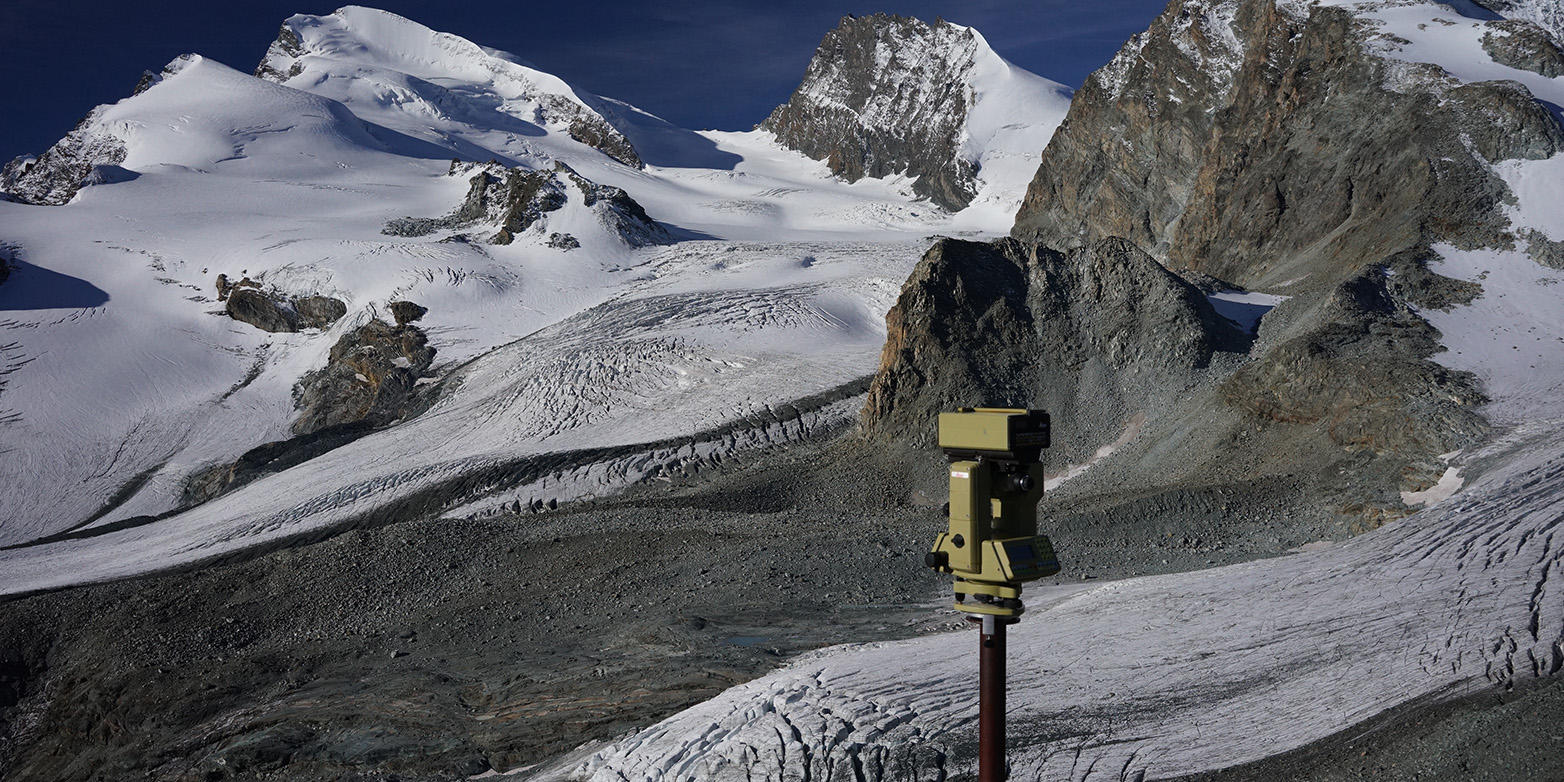
Citizens launch initiative to combat global warming

Nobel Prize-winning scientist Jacques Dubochet is among a group of people launching an initiative calling for carbon dioxide emissions in Switzerland to be reduced to zero by 2050 – and for this to be set down in the Swiss constitution.
More than 100 people gathered at the foot of the Stein glacier on the scenic Susten PassExternal link on Saturday to mark the launch, the newly formed Swiss Association for the Climate Protection said in a statementExternal link. The glacier is a symbol of climate change, as it is disappearing before our very eyes, the group added.
According to the association, almost all the Alpine glaciers will have gone by the end of the 21st century and the melting away of the glaciers and of permafost carries the risks of flooding during the snow melt period, as well as rivers and streams running dry in the summer. The lack of snow has also consequences for the Swiss landscape and tourism industry, the statement added.
Targeting CO2
The “Glaciers Initiative” states that CO2 emissions must be eliminated by 2050, as set out in the 2015 Paris Accord – which aims to limit global warming to 2 degrees Celsius. Initiators say the move is necessary because not enough is being done in Switzerland to protect the environment and keep to the Paris Accord measures.
+ Read more about what the Paris Accord entails here
“We are the generation of climate deregulation and we want to put our planet back onto the right path,” said Dubochet, who won the Nobel Prize for Chemistry in 2017, in the statement.
Under Switzerland’s system of direct democracy, people’s initiatives allow citizens to propose changes to the constitution by introducing new provisions, or by amending or repealing existing provisions. But to go to the polls, it needs at least 100,000 signatures, gathered within 18 months.
+ Watch this video on people’s initiatives
Glacier warnings
Earlier this month, a leading Swiss glaciologist warned that Switzerland’s smaller glaciers were doomed, but that up to a third of ice stored in larger glaciers could be saved, if the Paris Accord is implemented.
Meanwhile, the Federal Institute of Technology Zurich (ETH Zurich) has said that it is working on a new dynamic glacier inventory that makes the impact of climate change and the changing landscape more visible. It replaces previous inventories. “From 2019, Switzerland will for the first time be able to turn to a glacier inventory that will undergo dynamic further development and be completely renewed every four to six years,” a statement said.External link

More
Observing the ‘inexorable death’ of glaciers in real time

In compliance with the JTI standards
More: SWI swissinfo.ch certified by the Journalism Trust Initiative



























You can find an overview of ongoing debates with our journalists here . Please join us!
If you want to start a conversation about a topic raised in this article or want to report factual errors, email us at english@swissinfo.ch.